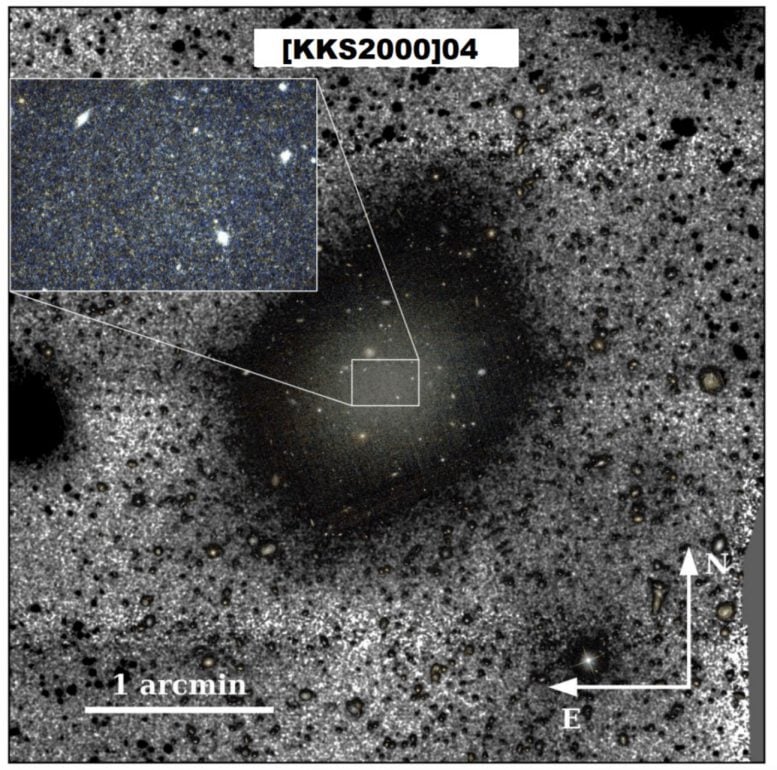
The ultra-diffuse galaxy KKS2000]04 (NGC1052-DF2), towards the constellation of Cetus, considered previously a galaxy with no dark matter. Credit: Trujillo et al.
A group of researchers from the Instituto de Astrofísica de Canarias (IAC) has clarified one of the mysteries of 2018 in the field of extragalactic astrophysics: the supposed existence of a galaxy without dark matter.
Galaxies with no dark matter are impossible to understand in the framework of the current theory of galaxy formation because the role of dark matter is fundamental in causing the collapse of the gas to form stars. In 2018, a study published in Nature magazine announced the discovery of a galaxy that lacked dark matter, which made a strong impact, and occupied the covers of popular scientific magazines.
Now, according to an article published in the Monthly Notices of the Royal Astronomical Society (MNRAS), a group of researchers at the Instituto de Astrofísica de Canarias (IAC) has solved this mystery via a very complete set of observations of KKS2000]04 (NGC1052-DF2), previously nicknamed “the galaxy without dark matter”.
In this study the researchers, perplexed because all the parameters that depended on the distance of the galaxy were anomalous; have revised the available distance indicators. Using five independent methods to estimate the distance of the object they found that all of them coincided in one conclusion: the galaxy is much nearer than the value presented in the previous research.
The original article published in Nature stated that the galaxy is at a distance of some 64 million light years from the Earth. However, this new research has revealed that the real distance is much less, around 42 million light years.
Thanks to these new results, the parameters of the galaxy inferred from its distance have become “normal” and fit the observed trends traced by galaxies with similar characteristics.
The most relevant datum that has been found via the new distance analysis is that the total mass of this galaxy is around half of the mass estimated previously, but the mass of its stars is only about a quarter of the previously estimated mass. This implies that a significant part of the total mass must be made up of dark matter. The results of this work show the fundamental importance of the correct measurement of extragalactic distances. It has always been one of the most challenging tasks in astrophysics: how to measure the distances to objects which are very far away and thatwe cannot touch.
Reference: “A distance of 13 Mpc resolves the claimed anomalies of the galaxy lacking dark matter” by Ignacio Trujillo, Michael A Beasley, Alejandro Borlaff, Eleazar R Carrasco, Arianna Di Cintio, Mercedes Filho, Matteo Monelli, Mireia Montes, Javier Román, Tomás Ruiz-Lara, Jorge Sánchez Almeida, David Valls-Gabaud and Alexandre Vazdekis, 14 March 2019, Monthly Notices of the Royal Astronomical Society
DOI: 10.1093/mnras/stz771

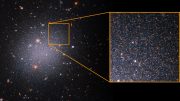
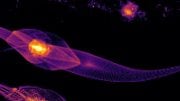
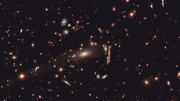
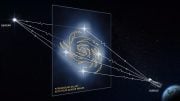
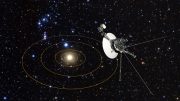

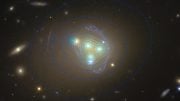

They did their math wrong?
Not uncommon these days when “science” is mostly massaging of data to get the results you’re paid for…
Brett, you think so?
What evidence do you have for your assertion.
You realise all scientific papers are peer reviewed for accuracy.
Or was your statement just a throw away?
Peer reviewed for accuracy? So they all agree that they are inaccurate! Making up stuff to keep the mystery alive to keep the money rolling in. Everyone of you so-called scientists without a degree in electrical engineering should be fired for keeping science retarded. If you won’t admit that it’s an electromagnetic plasma universe then you should get off the merry-go-round
Dark matter is a theoretical fiddle factor to account for unexpected observations. Why does it elude detection on earth otherwise?